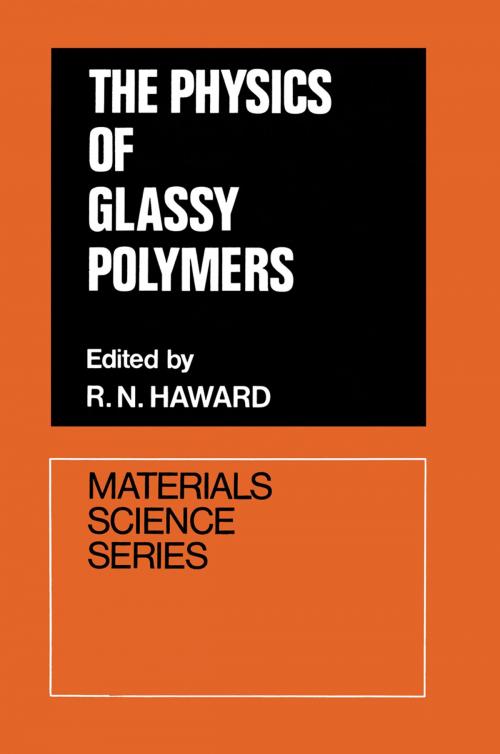The Physics of Glassy Polymers
Kids, Natural World, Nonfiction, Reference & Language, Education & Teaching, Science & Nature, Science| Author: | R. N. Haward | ISBN: | 9789401023559 |
| Publisher: | Springer Netherlands | Publication: | December 6, 2012 |
| Imprint: | Springer | Language: | English |
| Author: | R. N. Haward |
| ISBN: | 9789401023559 |
| Publisher: | Springer Netherlands |
| Publication: | December 6, 2012 |
| Imprint: | Springer |
| Language: | English |
This work sets out to provide an up-to-date account of the physical properties and structure of polymers in the glassy state. Properties measured above the glass transition temperature are therefore included only in so far as is necessary for the treatment of the glass transition process. This approach to the subject therefore excludes any detailed account of rubber elasticity or melt rheology or of the structure and conformation of the long chain molecule in solution, although knowledge derived from this field is assumed where required. Major emphasis is placed on structural and mechanical properties, although a number of other physical properties are included. Naturally the different authors contributing to the book write mainly from their own particular points of view and where there are several widely accepted theoretical approaches to a subject, these are sometimes provided in different chapters which will necessarily overlap to a significant extent. For example, the main theoretical presentation on the subject of glass transition is given in Chapter 1. This is supplemented by accounts of the free volume theory in Chapter 3 and in the Introduction, and a short account of the work of Gibbs and DiMarzio, also in Chapter 3. Similarly, there is material on solvent cracking in Chapters 7 and 9, though the two workers approach the subject from opposite directions. Every effort has therefore been made to encourage cross-referencing between different chapters.
This work sets out to provide an up-to-date account of the physical properties and structure of polymers in the glassy state. Properties measured above the glass transition temperature are therefore included only in so far as is necessary for the treatment of the glass transition process. This approach to the subject therefore excludes any detailed account of rubber elasticity or melt rheology or of the structure and conformation of the long chain molecule in solution, although knowledge derived from this field is assumed where required. Major emphasis is placed on structural and mechanical properties, although a number of other physical properties are included. Naturally the different authors contributing to the book write mainly from their own particular points of view and where there are several widely accepted theoretical approaches to a subject, these are sometimes provided in different chapters which will necessarily overlap to a significant extent. For example, the main theoretical presentation on the subject of glass transition is given in Chapter 1. This is supplemented by accounts of the free volume theory in Chapter 3 and in the Introduction, and a short account of the work of Gibbs and DiMarzio, also in Chapter 3. Similarly, there is material on solvent cracking in Chapters 7 and 9, though the two workers approach the subject from opposite directions. Every effort has therefore been made to encourage cross-referencing between different chapters.















